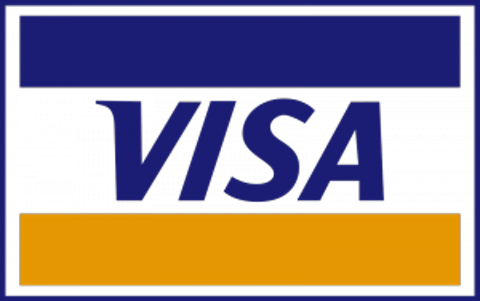
A US District Court passed the landmark ruling on July 31, 2013, that in effect invalidated an earlier ruling regarding debit card fees levied by card companies. The Wednesday ruling overturned an earlier ruling passed in 2010 and placed into operations in October 2011, that allowed the Federal Reserve to place an unprecedented $0.21 cap on debit card fees, the first time debit card fees were capped. Presiding Judge Richard Leon ruled that the Fed had blatantly disregarded Dodd-Frank regulations, by inflating debit card transactions and failing to provide card merchants with multiple unaffiliated networks for every debit card transactions.
In reality, the major beneficiaries of swipe fees are banks, and not debit card companies such as Visa Inc (NYSE:V) and MasterCard. Banks pay card-issuing companies to use their systems, which in turn collect the fees and pass them on to the card-issuing banks, although the fees are set by the card companies themselves. This revelation should not come as a surprise given that it is intense lobbying by banks that prompted the Fed to raise swipe fees by $0.09 from $0.12 to $0.21 in the first place.
Sharp drop fails to keep near-term bulls at bay
The ‘‘Kings of Plastic,’’ Visa Inc (NYSE:V), Mastercard Inc (NYSE:MA) and American Express Company (NYSE:AXP) immediately reacted to the historic ruling the minute the news hit Wall Street. Visa Inc (NYSE:V) shares in particular were badly hammered and left on the ropes seriously bleeding.
The shares tumbled a jaw-dropping 7.54% to trade at just $173 following the announcement, while American Express Company (NYSE:AXP) declined by 1.89%. Mastercard Inc (NYSE:MA) was the only exception to the tanking share prices, its shares managing to close the day 1.53% up, mainly buoyed by the firm’s sterling second-quarter 2013 results. Visa Inc (NYSE:V) was the worst hit of the three companies, owing to its huge lead in the global card industry; the company holds pole position in terms of market share, and commands an unassailable 72.7% of the global market. Mastercard Inc (NYSE:MA) comes in a distant second with a 22% slice of the market.
The massive decline of Visa shares has, however, not deterred bulls who are now looking for fresh entry points into the recovering stock. Perhaps in a strong show of confidence in Visa Inc (NYSE:V) in spite of the ruling, a massive 57,000 calls switched hands on Aug.1, the day after the court decision, close to eight times the stock’s average daily volume. At the opposite end of Visa’s option spectrum, 36,000 puts changed hands. The August $190 call was at the helm and close to 7,700 option contracts crossed the tape, with a large percentage at the asking price. These calls were deep out-of-the-money and were traded at a VWAP (Volume-Weighted Average Price) of just $1.69.This means that traders were betting on Visa shares to move North of the breakeven price of $191.69 ($190 strike price + $1.69 VWAP).
Many investors have found it intriguing that American Express Company (NYSE:AXP), a credit card company with zero-exposure to the debit card industry and whose business was, consequently, not affected in any way by the ruling, was caught by the debit card fiasco. Investors looking for positions in the company can now look for new entry points.
What the ruling means for debit card companies
The effects of the landmark court ruling will have far-reaching consequences for debit card companies. Debit card fees could possibly be cut in half. This will negatively impact the bottom lines of both Visa and Mastercard Inc (NYSE:MA). The Federal Reserve is very likely to appeal the court decision; even if it chooses not to, the process of creating and implementing new rules is likely to be long and arduous.
Visa and Mastercard Inc (NYSE:MA) annual reports do not give a clear picture of how much the companies make from fees levied on debit card transactions. Financial Services Company Guggenheim Partners, estimates that debit card fees per transaction will settle at $0.07- $0.12. Visa and MasterCard can still take some solace in the fact that the lowered fees are likely to lead to a considerable growth in overall transaction volume, and will therefore offset, at least partly, the lost revenue. Moreover, the prevailing interchange rates are likely to remain unchanged until the Fed develops new standards or a resolution occurs.
Peer analysis
Mastercard Inc (NYSE:MA) tops Visa when it comes to credit services. The company’s revenue base is also more diversified than Visa’s since the U.S. market contributes just 39% of its revenue compared to 56% for Visa. MasterCard has also taken several bold initiatives to grow its presence in online and mobile transactions. This means that its business is now more market driven.
American Express posted good results in the first-quarter of 2013. 50% of its revenue comes from the American market. The company’s U.S. business division recorded a 5% growth in revenue. The improved macroeconomic conditions and better consumer sentiments will likely help American Express continue with its impressive performance. The company is expanding its international business and has teamed up with several financial institutions to issue third-party card in these countries.
Ratio analysis
| P/S Ratio | Forward P/E | PEG Ratio | EV/EBITDA | |
| Visa | 11.14 | 21.70 | 1.35 | 17.22 |
| American Express | 2.87 | 14.77 | 1.38 | N/A |
| MasterCard | 9.61 | 19.75 | 1.32 | 15.76 |
Visa Inc (NYSE:V) is trading at a premium with respect to its two peers. Investors therefore believe that the company’s future prospects are considerably better. Visa’s huge lead in global market share as well as its future business strategies that encompass developments such as expanding its foothold in emerging markets, where the shift from cash to electronic payments in a lot of developing countries as well as mobile banking and e-commerce growth, will all provide some lift to the card giant.
Conclusion
Heavy reliance on debit cards for its revenue is the biggest reason why Visa Inc (NYSE:V) was more hurt by the debit card court ruling.
Visa might be down, but it most definitely is not out. It is highly unlikely that either Visa or MasterCard will suffer economically from any changes in the current interchange cap. Major banks will probably try to renegotiate their fees since they seem to have an uncanny ability to make up for lost revenue by any means possible.
Despite this, it is hardly likely that they will be willing to strain their delicate relationships with card purveyors such as Visa and Mastercard Inc (NYSE:MA). Once investors fully digest the real meaning of the historic ruling, Visa shares are likely to rebound strongly. Visa returned impressive second-quarter results and is likely to continue with this trend in the coming quarters. The unfortunate blip cannot hold the credit card giant down for long.
The article Visa Selloff Has Eager Investors Eyeing Fresh Entry Points originally appeared on Fool.com and is written by Boniface Murigu.
Boniface Murigu has no position in any stocks mentioned. The Motley Fool recommends MasterCard and Visa. The Motley Fool owns shares of MasterCard. Boniface is a member of The Motley Fool Blog Network — entries represent the personal opinion of the blogger and are not formally edited.
Copyright © 1995 – 2013 The Motley Fool, LLC. All rights reserved. The Motley Fool has a disclosure policy.





